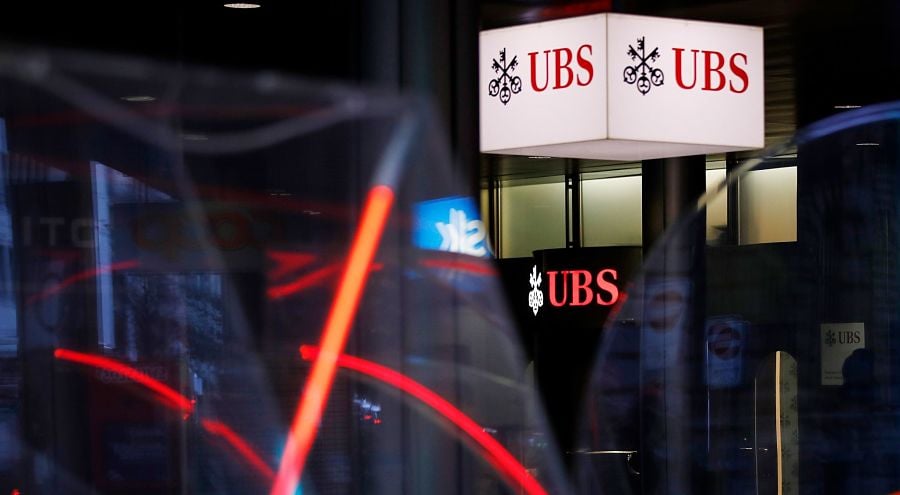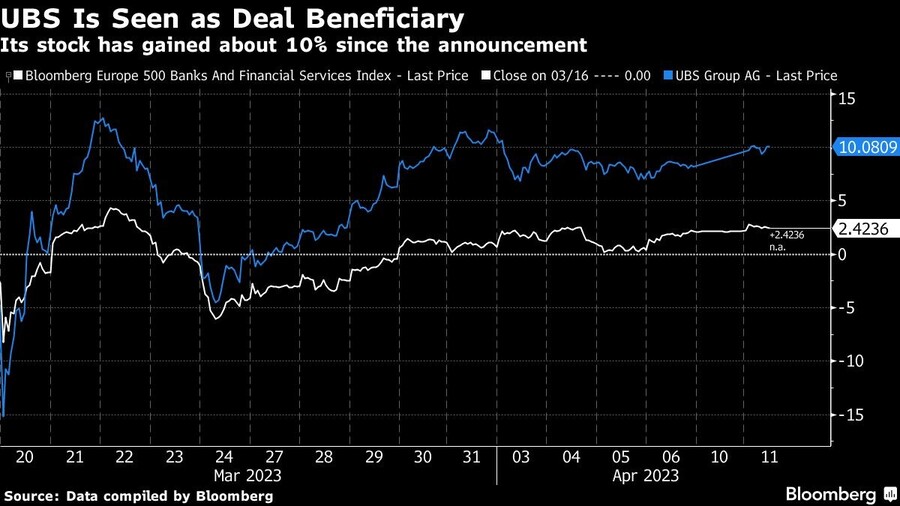

UBS Group’s $3.3 billion acquisition of rival Credit Suisse Group will transform it into a banking juggernaut at a bargain price, JPMorgan analysts said Tuesday.
The deal is set to turn UBS into a wealth management “powerhouse” with “one of the most attractive business models in global banking,” analysts led by Kian Abouhossein said in a research note. Meanwhile, the price paid is “attractive” for UBS even after factoring in potential losses on Credit Suisse assets, litigation costs and restructuring expenses, they said.
UBS bought Credit Suisse last month in a deal orchestrated by the Swiss government, following a collapse in confidence at the lender that threatened to trigger a broader financial crisis. UBS, already one of the world’s largest wealth managers, is now taking over a key rival for a fraction of the value of its assets and as much as 9 billion Swiss francs ($9.9 billion) in government loss guarantees.
UBS shares plunged after the deal announcement but they have since gained more than 10% as investors increasingly seem to see the terms as positive. By comparison, the Bloomberg Europe 500 Banks And Financial Services Index — a benchmark for the industry as a whole — has only increased by about 5% over the same period.

“The transaction has potential to be very attractive on an economic return-on-investment basis,” the analysts wrote. They forecast that the combined group could generate $7 billion in wealth management pretax profit by 2027.
However, the government-orchestrated rescue of Credit Suisse has met with some discontent among the Swiss population and politicians, with some lawmakers voicing their frustration over the government’s use of emergency measures at a parliamentary session on Tuesday.
Job cuts at Credit Suisse’s Swiss operations following the takeover could be delayed if they become “a political issue,” the JPMorgan analysts said in their note. Risks to the smooth execution of the deal could end up forcing UBS to sell or float the Credit Suisse’s domestic universal bank, which would fetch at least $10 billion in such a scenario.
That would “more than offset” the amount spent on the acquisition of the group by UBS, they wrote.

Firms are facing increasing scrutiny over whether they can be held responsible for losses by clients whose ability to understand their investments has been compromised.

Decision deepens the two firms’ decade-long relationship

Linqto Inc. was one of the first tech platforms to promise access to small investors into the high-risk, high-reward world of private investments.

Since Vis Raghavan took over the reins last year, several have jumped ship.

Chasing productivity is one thing, but when you're cutting corners, missing details, and making mistakes, it's time to take a step back.
Stan Gregor, Chairman & CEO of Summit Financial Holdings, explores how RIAs can meet growing demand for family office-style services among mass affluent clients through tax-first planning, technology, and collaboration—positioning firms for long-term success
Chris Vizzi, Co-Founder & Partner of South Coast Investment Advisors, LLC, shares how 2025 estate tax changes—$13.99M per person—offer more than tax savings. Learn how to pass on purpose, values, and vision to unite generations and give wealth lasting meaning
